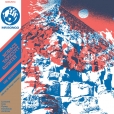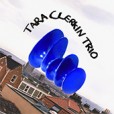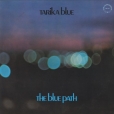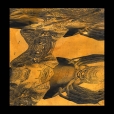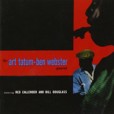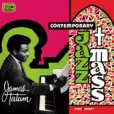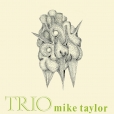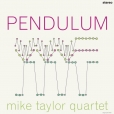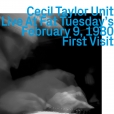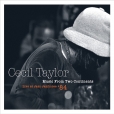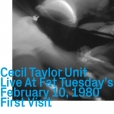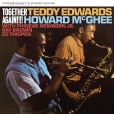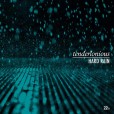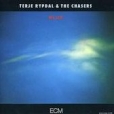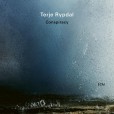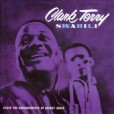Your basket is empty

Recorded in 1969 to follow up the classic The Giant Is Awakened LP, but never released; now sensationally sprung from the Flying Dutchman archives.
‘World Peace starts with a neo-baroque melody, leading to an eruption in sound, then ends as it began. The beautiful Your Child is the jewel in the crown, skirting modal, deep jazz and introducing elements of free jazz. Opening with bowed bass and piano, For Fats takes you on a journey, dropping into dark, stormy melodies, and developing a driving energy as it progresses.’
Tapscott is joined by the same personnel as Giant: Arthur Blythe, Everett Brown, David Bryant and Walter Savage. Produced by the legendary Bob Thiele.
Feeling, story-telling, ranging music-making by Tara Clerkin, Sunny-Joe Paradisos and Patrick Benjamin from Bristol, where they’ve been collaborating for around a decade.
Thumbs up from The Wire: ‘Drifting from dubby minimalism to smudged acid jazz, Tara’s stark and tuneful voice acts as the vehicle for her concise poetic lyricism. The group coalesce disparate influences into a cohesive sound, reflecting a romantic view of a familiar world.’
Check it out.
Outstanding, spiritualised jazz-funk; keenly focussed but free and warm; steeped in post-bop and wide-open to r&b; somewhere between Lonnie Liston Smith’s Cosmic Echoes and Roy Ayers’ Ubiquity. Plenty here for dancers, chin-strokers and dreamers all.
The personnel discloses generous musical co-ordinates… Marvin Blackman from the Rashied Ali Quartet is here, and Ryo Kawasaki. James Mason and Justo Almario were later collaborators. Just a couple of years before this, Tarika Blue leader Phil Clendeninn was playing in a New York funk outfit alongside Nile Rodgers and Bernard Edwards…
‘Recorded at home in 2012, early acoustic guitar improv performances from the Bhutanese expat, who’d come to Asheville, NC to study in 2000 and discovered worlds of anarcho-punk and avant garde such as he’d only dreamed. Having made recordings of his newly-located improvisational conception, he intuited a desire to go deeper in his explorations of the recorded sound of the guitar, melding and colliding traditional music with his feeling for the range of textures within.’
This debut solo recording of the Hot Chip is a scrapbook of fifteen songs and instrumentals, made in planes, hotel rooms and at home, with bags of charm and inventiveness.
With Sonny Murray in 1996.
Late 1966 recordings for Blue Note and BYG.
With Jimmy Lyons, Alan Silva, and Andrew Cyrille throughout; plus Bill Dixon and Henry Grimes on the opener (from the Conquistador sessions).
A killer Unit: with Jimmy Lyons, Ramsey Ameen, Alan Silva, Jerome Cooper, & Sunny Murray.
Documenting the third of their performances during a residency in New York City, this release follows on from the classic HatHut album It Is In The Brewing Luminous, and the recent Ezzthetics CD Live At Fat Tuesday’s, February 9, 1980.
Wonderful music.
We love this LP; it’s an old favourite. You can hear Teddy adjusting the influences of Hawk and Bird to meet the challenge of Rollins and Coltrane. You can’t go wrong with any of his West Coast albums from 1960-67, for Pacific, Contemporary and Prestige. Classy, bluesy, no frills West Coast jazz; cultured but tasty and with-it. This one has the warmth, purposefulness and swing of a classic Blue Note. Phineas Newborn plays a blinder, too.
Here’s the Penguin Guide: ‘One of the best mainstream albums of its day… beautifully and almost effortlessly crafted.’
Free-flowing recordings made in Pakistan with members of the instrumental quartet Jaubi (including Zohaib Hassan Khan on sarangi).
Mumbles, taking a break from Ellingtonia for his first recording session as leader, in 1955. Killer band, including Horace Silver, Oscar Pettiford and Art Blakey; swinging arrangements by Quincy Jones. The title track is absolute first-degree murder. Don’t miss it.
